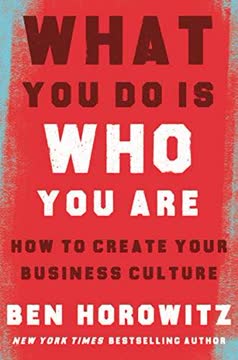重点摘要
1. 天使投资:高风险、高回报的创业融资游戏
"不冒险,就没有未来。"
高风险,高回报。 天使投资是指将资金投入到一家私人企业的最早期投资轮次,通常是成立不到三年的企业,几乎没有任何市场牵引力。这是一种高风险、高回报的游戏,投资者希望获得远超投入的回报。潜在的回报远远超过那些更安全、更成熟的投资工具。
概率与策略。 初创企业的失败率在70-90%之间,使得天使投资比在拉斯维加斯玩桌面游戏更具风险。然而,如果一家初创企业成为“独角兽”(估值达到10亿美元或以上),回报可能是改变人生的。关键是投资多个初创企业,分散投资组合,以增加获得巨大成功的机会。
- 典型投资额:每个初创企业$25,000-$100,000
- 目标:在3-5年内投资50多个初创企业
- 预期结果:80%可能会失败,但一次大的成功可以弥补所有损失
2. 硅谷优势:创新的温床
"世界正被少数强大而聪明的人所控制,他们知道如何创造那些机器人,或者如何设计你正在阅读的平板电脑上的软件。"
创新中心。 硅谷已经成为技术、媒体、交通、广告、健康和住宿领域的驱动力。它是创业宇宙的中心,拥有一个独特的生态系统,促进创新和增长。
网络效应。 硅谷的人才、资本和资源的集中创造了强大的网络效应。这个生态系统包括:
- 投资者(天使投资人、孵化器和风险资本家)
- 创始人
- 服务提供商(大学、律师、猎头和银行)
- 人才库(开发人员、设计师和营销人员)
这些元素之间的协同作用使得硅谷成为初创企业蓬勃发展的理想场所,也是天使投资者寻找下一个大项目的理想之地。
3. 创始人评估:识别十亿美元的潜力
"我不需要知道你的想法是否会成功,我需要知道你是否会成功。"
以创始人为中心的方法。 在评估初创企业时,重点关注创始人,而不仅仅是想法或市场。伟大的创始人可以转变和适应,即使是平庸的想法也能变成成功的企业。
关键创始人特质:
- 对愿景的热情和承诺
- 执行和解决问题的能力
- 面对挑战的韧性
- 强大的沟通技巧
- 吸引人才和资源的能力
评估技巧:
- 提出关于他们背景和动机的深度问题
- 观察他们如何处理压力和意外情况
- 评估他们阐述愿景和战略的能力
- 评估他们的过往记录和前雇主或项目的推荐
4. 尽职调查:在初创企业推介中分辨事实与虚构
"所有以谎言开始的关系都会以泪水告终。"
验证声明。 进行彻底的尽职调查,以验证创始人提供的信息。这个过程有助于分辨真正的机会与过度炒作或欺诈的推介。
关键调查领域:
- 客户牵引力和收入声明
- 团队构成和经验
- 市场规模和竞争格局
- 知识产权和技术优势
- 财务预测和资金消耗率
红旗警示:
- 不一致或夸大的指标
- 不愿提供详细信息
- 对资金使用缺乏清晰的说明
- 不切实际的估值期望
始终与多个来源交叉核对信息,不要犹豫要求支持文件。
5. 构建你的天使投资组合:多样化和策略
"如果你不能分辨出扑克桌上的傻瓜是谁,那就是你,所以要么换桌,要么学会比其他玩家更强。"
多样化是关键。 要在天使投资中取得成功,构建一个跨不同领域和阶段的多样化初创企业投资组合。这种方法有助于降低风险,并增加获得大赢家的机会。
投资组合策略:
- 在3-5年内投资50多个初创企业
- 将净资产的5-20%分配给天使投资
- 从较小的投资($1,000-$2,500)开始,通过联合投资学习
- 随着经验的积累,逐步进行较大的投资($25,000+)
- 为表现最好的初创企业保留后续投资的资金
投资理念: 根据你的专业知识、兴趣和市场趋势,制定明确的投资理念。这将帮助你专注于你可以提供除资本之外的价值的领域。
6. 交易的艺术:估值、优先认购权和条款清单
"优先认购权是必须的,你不应该在没有它们的情况下进行交易。"
估值很重要。 理解和谈判初创企业的估值至关重要。虽然早期阶段的估值往往更像艺术而非科学,但它们为未来的轮次和你的潜在回报设定了基准。
关键交易条款:
- 优先认购权:在未来轮次中保持你的持股比例的能力
- 信息权:访问关键指标和财务信息
- 董事会席位或观察员权利:正式参与公司治理
- 清算优先权:在退出事件中优先获得回报
谈判策略:
- 问创始人他们如何得出估值
- 与同阶段的类似初创企业进行比较
- 对过高估值的交易保持离场的意愿
- 考虑提供增值服务以争取更好的条款
7. 导航初创企业生命周期:从种子到退出
"创办公司很容易,但通过退出完成它们——这真的很难。"
了解旅程。 初创企业从创立到退出经历多个阶段,每个阶段都有其自身的挑战和投资者的机会。
初创企业生命周期阶段:
- 种子阶段:想法验证和初步产品开发
- 早期阶段:产品市场契合和初步牵引力
- 成长期:扩大用户基础和收入
- 后期阶段:准备退出(IPO或收购)
投资者角色演变:
- 早期阶段:提供指导、连接和支持
- 后期阶段:帮助做出战略决策和准备退出
要为长期做好准备,因为成功的退出通常需要7-10年或更长时间。
8. 沟通是关键:初创企业更新的重要性
"如果一家初创企业没有每月向你发送投资者更新,它就要倒闭了。"
保持知情。 来自初创企业的定期更新对于天使投资者跟踪进展、识别潜在问题并提供及时支持至关重要。
有效的更新结构:
- 关键指标和关键绩效指标
- 最近的成就和里程碑
- 挑战及其应对方法
- 资金消耗和融资需求
- 对投资者帮助的具体请求
投资者回应:
- 确认并对更新提供反馈
- 在相关领域提供帮助和连接
- 及早标记问题以解决潜在问题
- 使用更新信息来决定后续投资
鼓励创始人保持一致的沟通,即使情况不佳时也要如此。
9. 经受风暴:应对失败并保持视角
"人生短暂。忠诚全在于意图。所以如果你对你的天使不忠诚,你要么是个不值得的人,要么是个聪明的自恋狂。不管怎样,去死吧。"
预期挫折。 天使投资涉及频繁的失败,尤其是在早期阶段。培养韧性并保持长期视角对于成功至关重要。
应对策略:
- 从失败中学习
- 庆祝小的胜利和进展
- 保持多样化的投资组合以平衡损失
- 建立同行投资者的支持网络
- 记住一次大的成功可以弥补许多损失
长期心态: 将天使投资视为一个十年的追求。早期的损失是学习过程的一部分,可以导致未来更好的决策。
10. 退出策略:IPO、收购和兑现
"伟大的公司是被买走的,而不是被卖掉的。"
了解退出选项。 天使投资的最终目标是实现有利可图的退出。这可以通过各种方式实现,每种方式都有其自身的考虑因素。
退出类型:
- IPO(首次公开募股):退出的圣杯,但很少见
- 收购:更常见,可以从人才收购到高价销售不等
- 二级市场销售:在公开退出前私下出售股份
退出考虑因素:
- 时机:平衡潜在的未来增长与确保回报
- 多样化:考虑分阶段出售部分股份
- 税务影响:与财务顾问咨询最佳退出策略
- 未来潜力:评估收购公司扩大初创企业的能力
记住,最好的退出通常来自那些并不积极寻求出售但由于其成功而成为有吸引力的收购目标的公司。
最后更新日期:
FAQ
What's "Angel: How to Invest in Technology Startups" about?
- Overview: The book is a guide to angel investing in technology startups, written by Jason Calacanis, who turned $100,000 into $100 million through strategic investments.
- Purpose: It aims to teach readers how to create massive wealth in the 21st century by investing in startups, focusing on the author's personal experiences and insights.
- Content Structure: The book is structured into chapters that cover various aspects of angel investing, from understanding what it is to evaluating deals and managing investments.
- Target Audience: It is intended for aspiring angel investors, entrepreneurs, and anyone interested in the tech startup ecosystem.
Why should I read "Angel: How to Invest in Technology Startups"?
- Practical Advice: The book offers timeless advice from a successful angel investor, providing practical steps and strategies for investing in startups.
- Real-Life Examples: Jason Calacanis shares his personal journey and experiences, including both successes and failures, offering valuable lessons for readers.
- Comprehensive Guide: It covers a wide range of topics, from the basics of angel investing to more advanced strategies, making it suitable for both beginners and experienced investors.
- Inspiration and Motivation: The book is not just about investing; it's also about the mindset and determination required to succeed in the high-risk world of startups.
What are the key takeaways of "Angel: How to Invest in Technology Startups"?
- Invest in Founders: Calacanis emphasizes the importance of investing in billion-dollar founders rather than just ideas or companies.
- Diversification: He advises making multiple small investments to spread risk and increase the chances of hitting a big win.
- Due Diligence: Conducting thorough research and understanding the market and the team behind a startup is crucial before investing.
- Long-Term Perspective: Angel investing is a long-term game, and patience is required as most returns come years after the initial investment.
How does Jason Calacanis define angel investing in the book?
- Early-Stage Investment: Angel investing involves putting money into the earliest rounds of a private business, typically when it is less than three years old.
- High Risk, High Reward: It is considered the riskiest asset class, with the potential for massive returns if the startup succeeds.
- Supportive Role: Angels often provide not just capital but also advice, mentorship, and access to their networks to help startups grow.
- Focus on Product/Market Fit: The goal is to invest in startups that are working towards achieving product/market fit and scaling their operations.
What is Jason Calacanis's investment strategy as outlined in the book?
- Invest in 50 Startups: Calacanis suggests investing in 50 startups over three years to increase the chances of finding a big winner.
- Syndicate Deals: He recommends starting with syndicate deals, which allow new investors to learn from experienced angels and invest smaller amounts.
- Focus on Silicon Valley: The book emphasizes the importance of being in Silicon Valley, where the best deals and talent are concentrated.
- Pro Rata Rights: Always secure pro rata rights to maintain your percentage ownership in future funding rounds.
What are the best quotes from "Angel: How to Invest in Technology Startups" and what do they mean?
- "No gamble, no future." This quote highlights the necessity of taking risks in angel investing to achieve significant returns.
- "You don’t pick billion-dollar companies. You pick billion-dollar founders." It underscores the importance of investing in the right people rather than just ideas.
- "Great companies are bought, not sold." This suggests that successful startups naturally attract buyers due to their growth and potential, rather than needing to be actively sold.
- "Do the work." A recurring theme in the book, emphasizing the importance of diligence, effort, and persistence in achieving success.
How does Jason Calacanis suggest handling pitch meetings?
- Preparation: Allocate three hours for each meeting—one hour for prep, one for the meeting, and one for postmortem analysis.
- Full Attention: Give founders your undivided attention during meetings, taking notes with pen and paper rather than digital devices.
- Ask Key Questions: Focus on understanding the founder's motivations, the problem they are solving, and their unfair advantage.
- No Immediate Decisions: Avoid saying yes or no during the meeting; take time to consider the investment before making a decision.
What is the significance of monthly updates according to the book?
- Communication is Key: Regular updates from founders are crucial for keeping investors informed and engaged.
- Sign of Health: A lack of updates often indicates that a startup is struggling or going out of business.
- Investor Support: Updates allow investors to provide timely advice and assistance, potentially helping the startup overcome challenges.
- Building Trust: Consistent communication builds trust between founders and investors, which is essential for long-term success.
What are the common pitfalls in angel investing as described in the book?
- Investing Too Early: Avoid investing in startups that are pre-product/market fit, as they carry higher risks.
- Ignoring Red Flags: Be wary of founders who are not transparent or who avoid providing detailed information about their business.
- Overcommitting: Manage your bankroll wisely and avoid putting too much money into a single investment.
- Emotional Decisions: Stay objective and avoid letting emotions drive investment decisions, especially during pitch meetings.
How does Jason Calacanis recommend evaluating a startup's potential?
- Founder Assessment: Focus on the founder's background, motivations, and commitment to the business.
- Market Opportunity: Consider the size and growth potential of the market the startup is targeting.
- Traction and Metrics: Look for evidence of traction, such as user growth or revenue, to gauge the startup's progress.
- Competitive Advantage: Identify the startup's unique strengths and how they differentiate from competitors.
What role do syndicates play in angel investing according to the book?
- Learning Opportunity: Syndicates allow new investors to learn from experienced angels and gain exposure to quality deals.
- Lower Entry Barrier: They enable investors to participate in deals with smaller amounts of capital, reducing risk.
- Shared Expertise: Syndicate leads often provide valuable insights and due diligence, benefiting all members.
- Network Building: Participating in syndicates helps investors build relationships with other angels and founders.
What is the "not yet" strategy for declining deals in the book?
- Polite Rejection: Instead of saying no, use "not yet" to keep the door open for future opportunities.
- Encourages Improvement: It motivates founders to address concerns and improve their business before reapproaching investors.
- Maintains Relationships: This approach preserves relationships and keeps communication lines open for potential future investments.
- Monthly Updates: Request to be added to the startup's monthly updates to stay informed about their progress.
评论
Angel 因其对天使投资的实用见解而备受赞誉。读者们欣赏Calacanis直率、诚实的态度和真实的经验。这本书因其可操作的建议而受到好评,帮助了新手和有经验的投资者。许多人认为它既有趣又激励人心。一些人批评其过于集中于硅谷,并且偶尔有重复内容。总体而言,评论者认为这是一本了解创业融资、投资者心态和科技行业格局的宝贵资源。由Calacanis本人朗读的有声书尤其受到好评。
Similar Books














